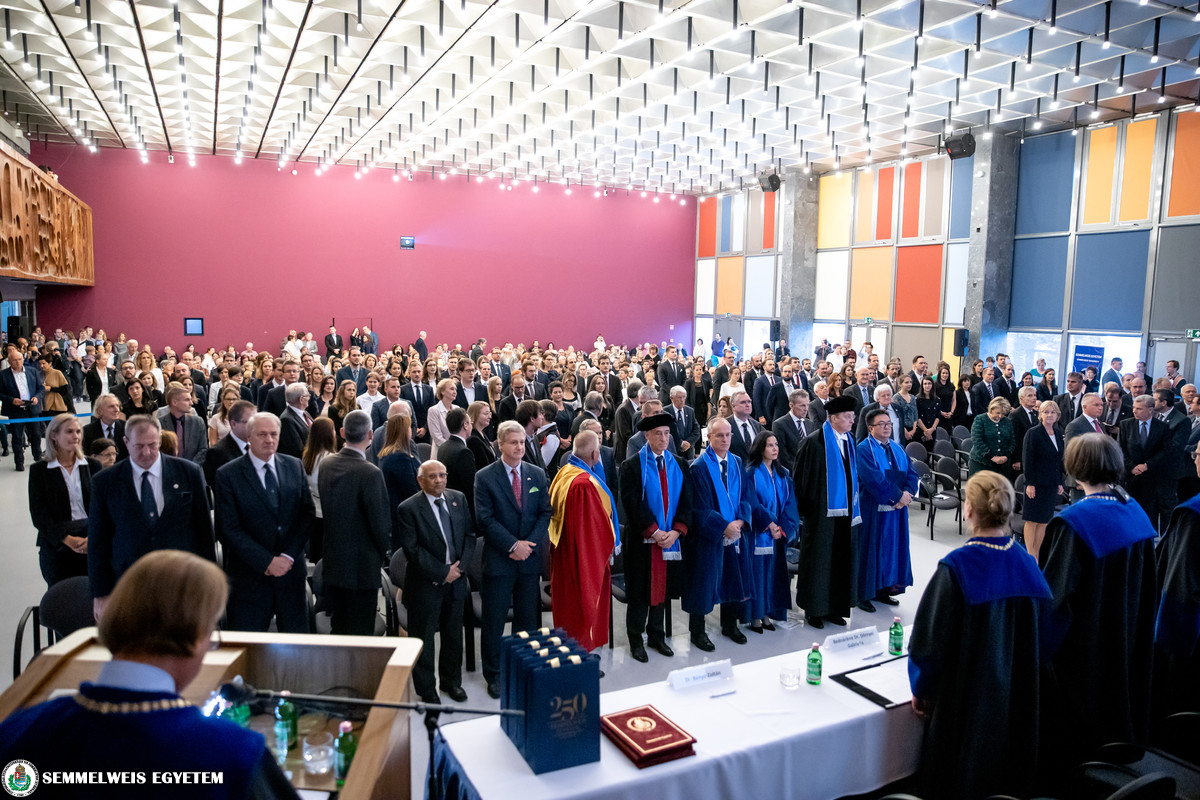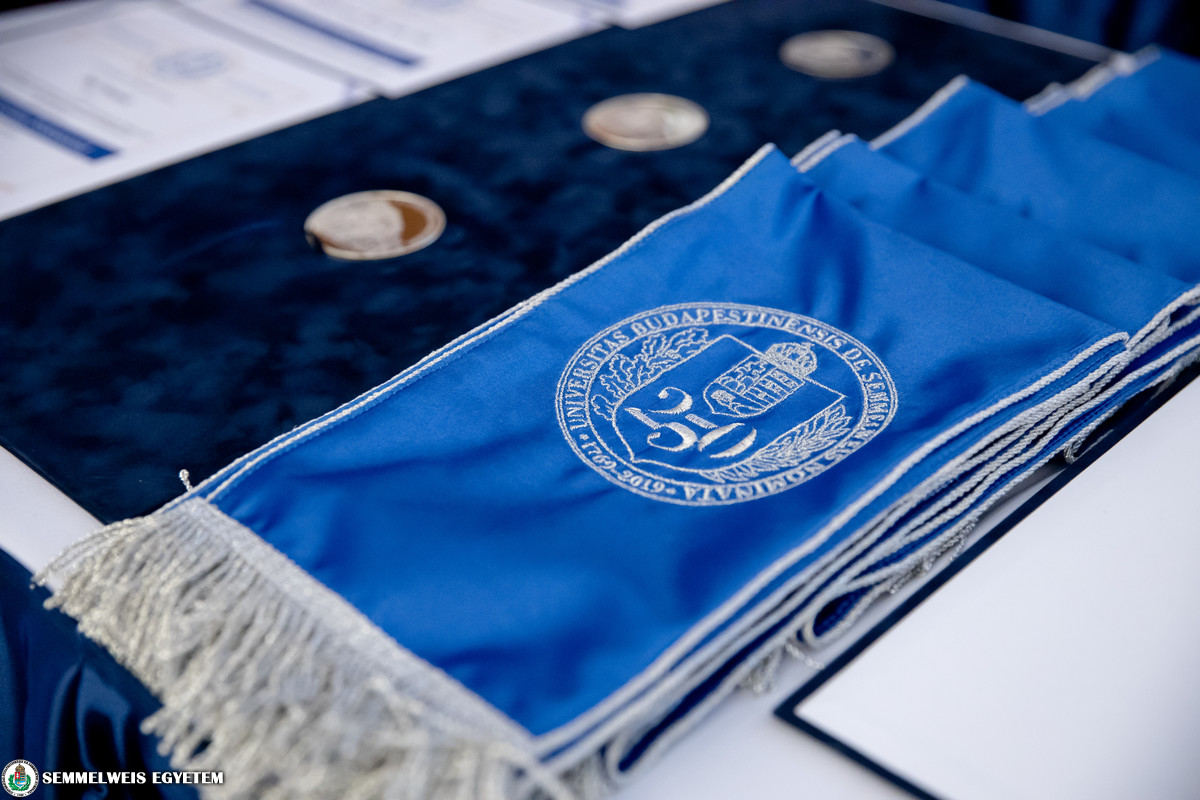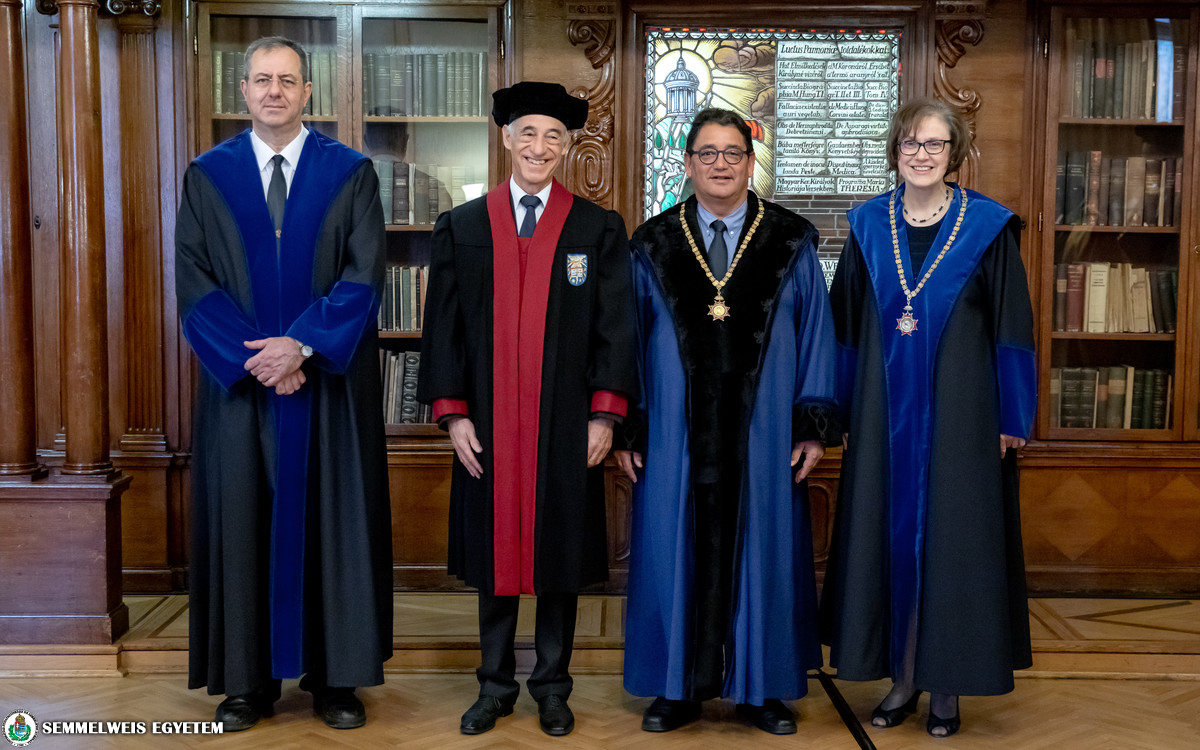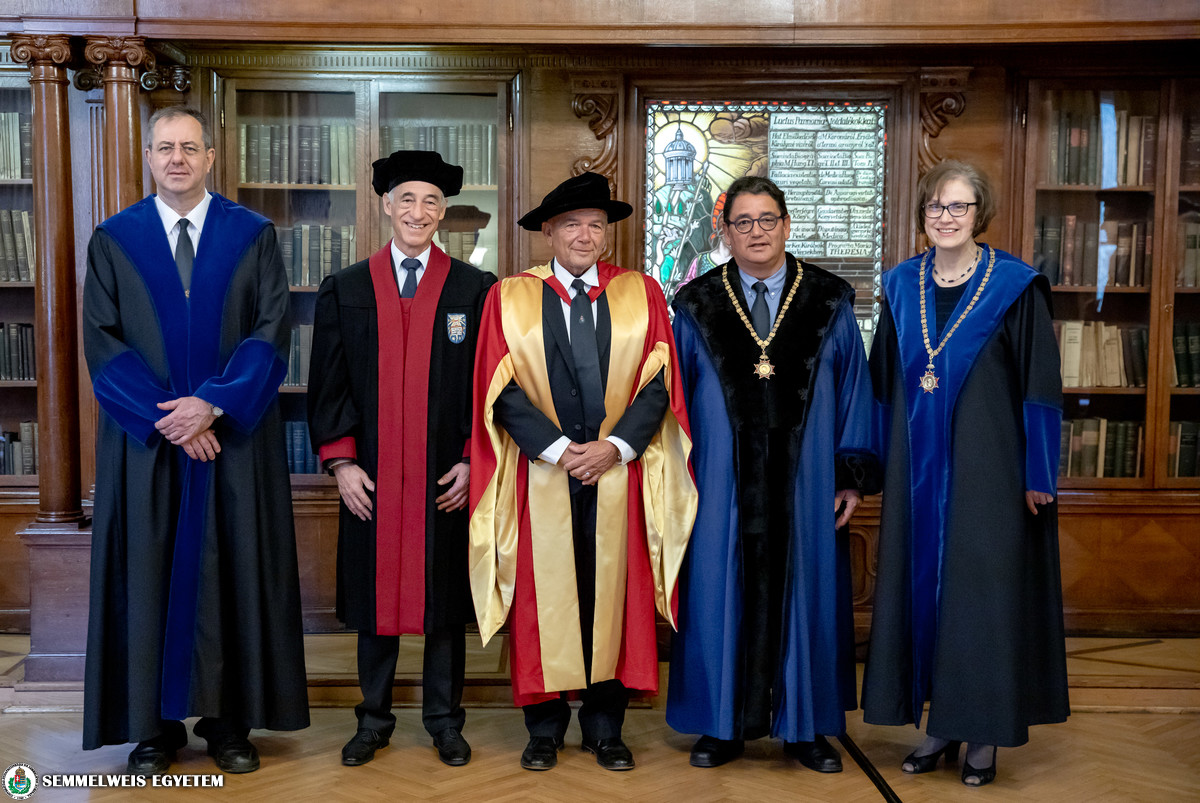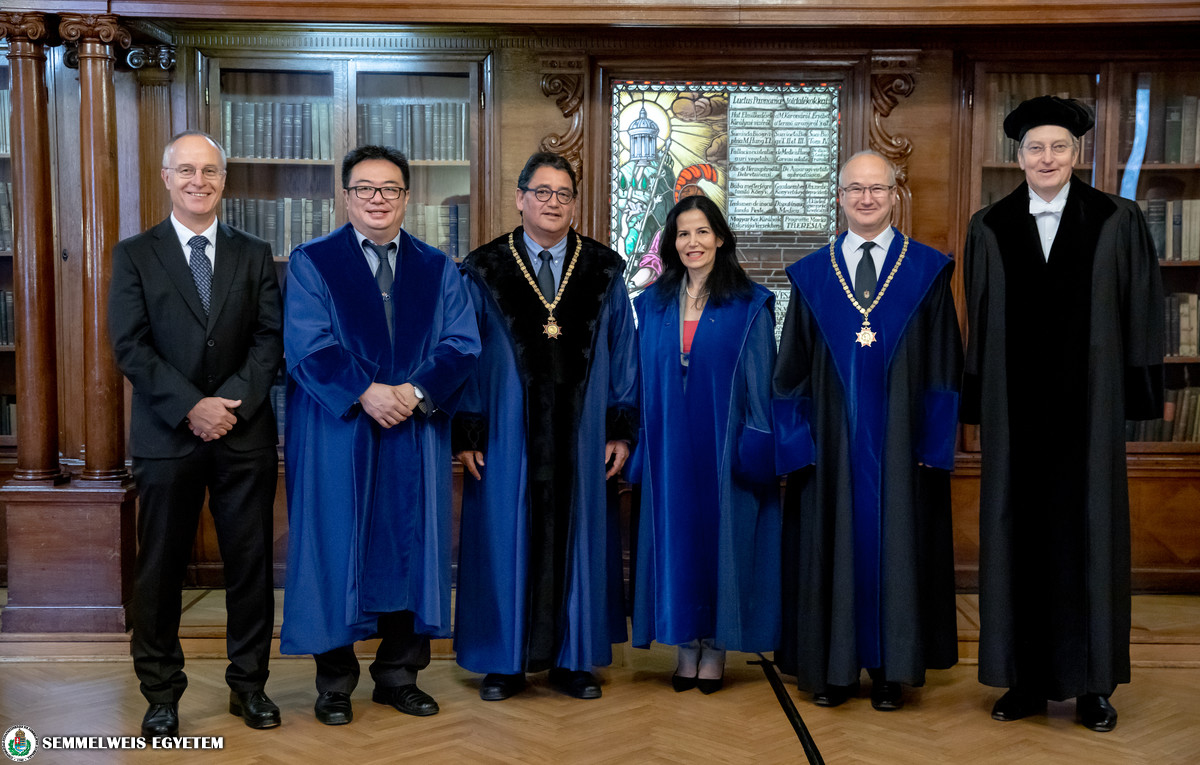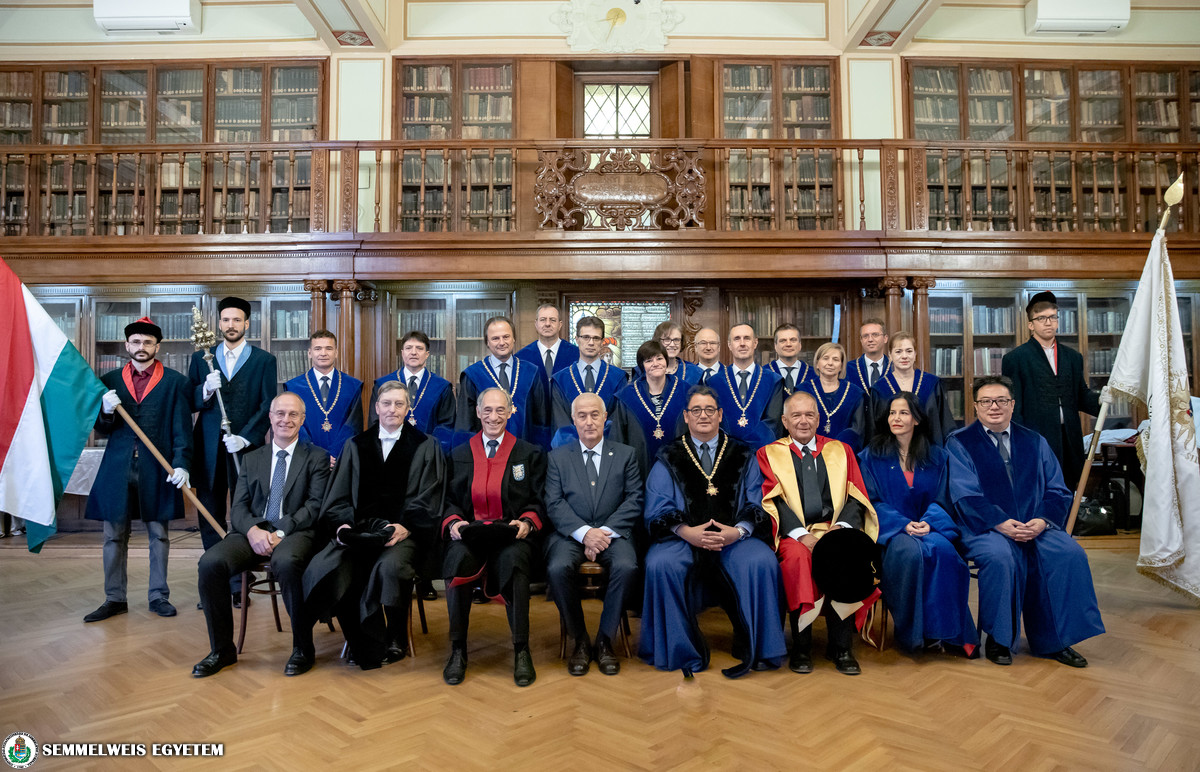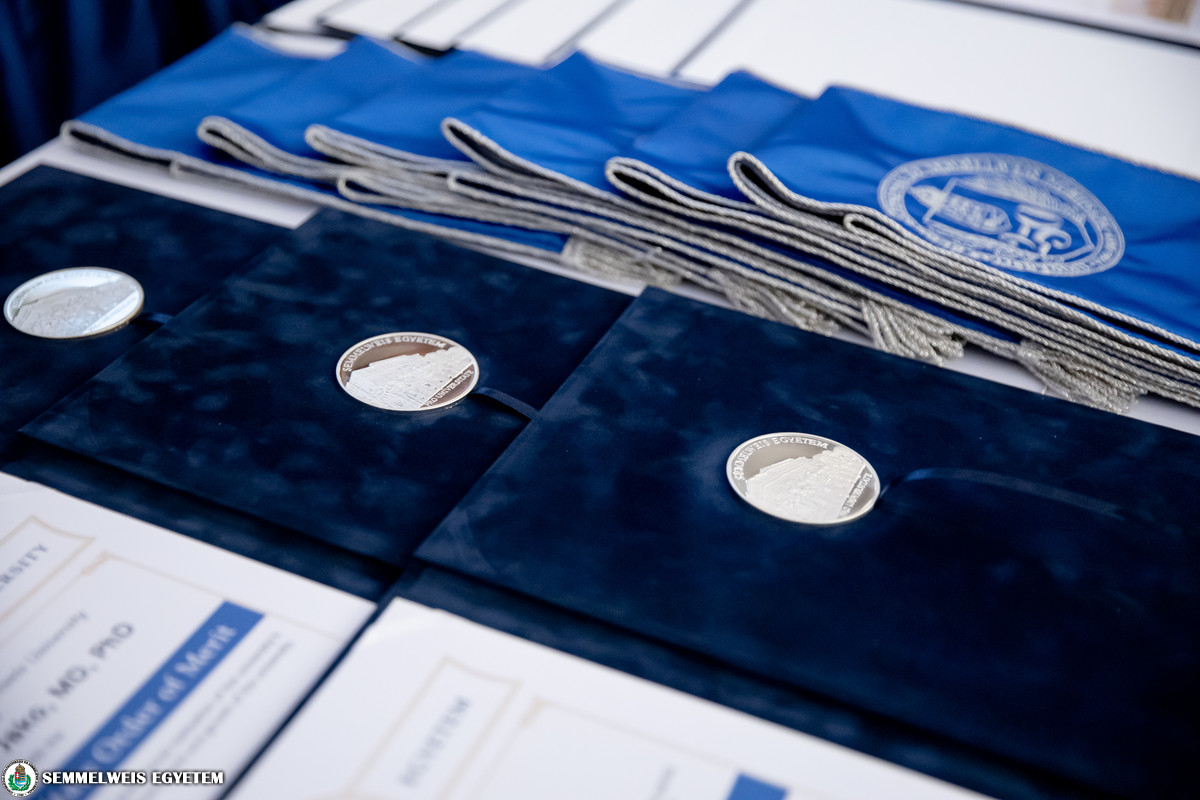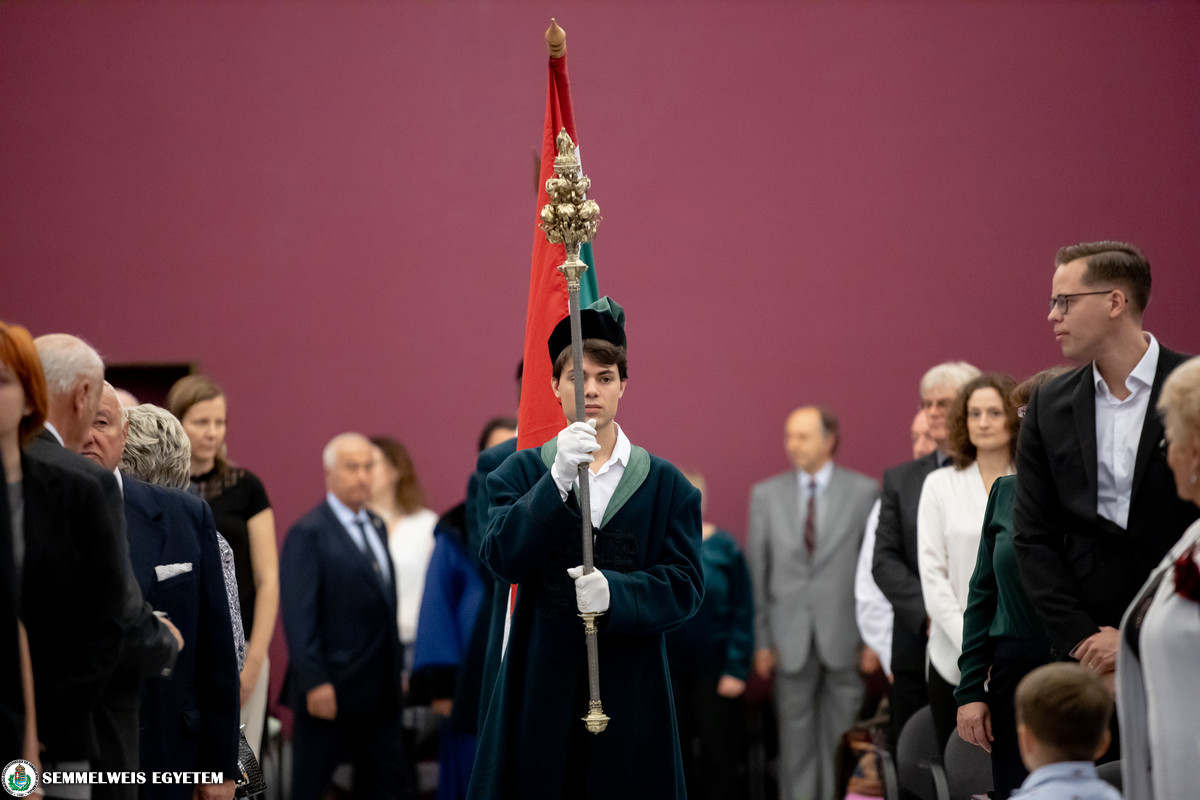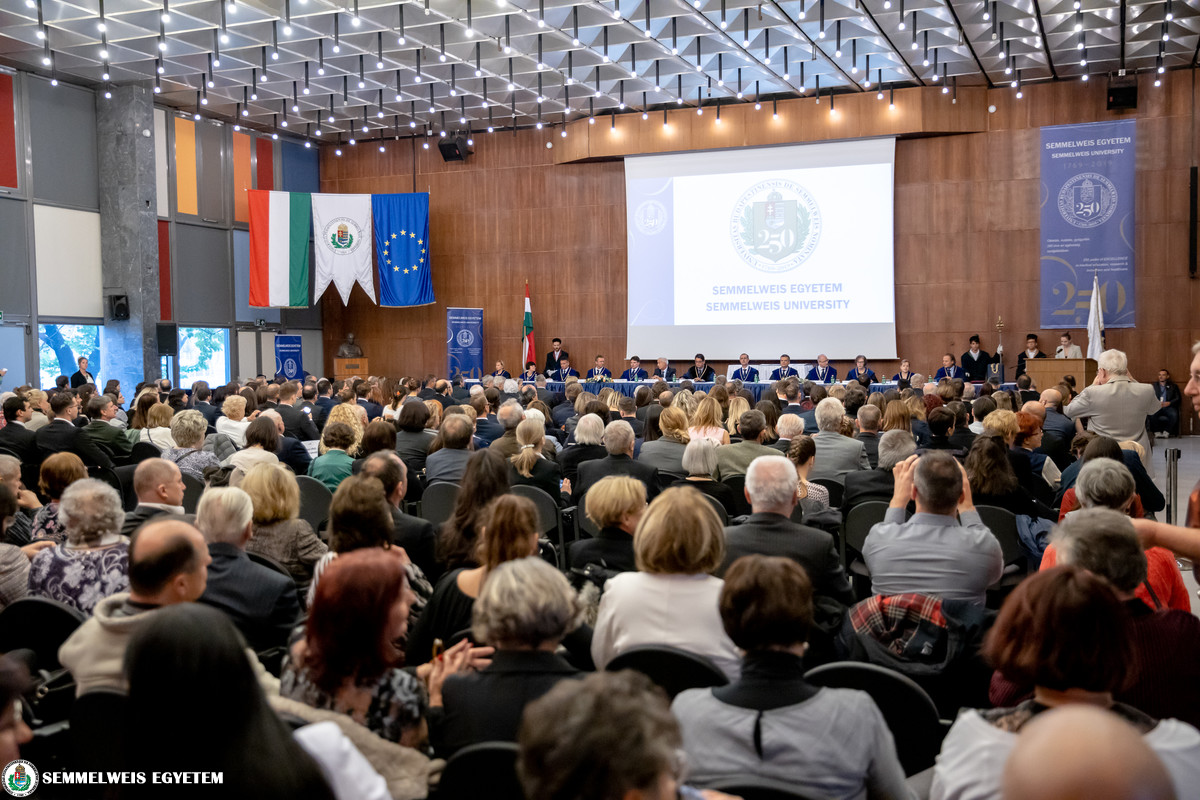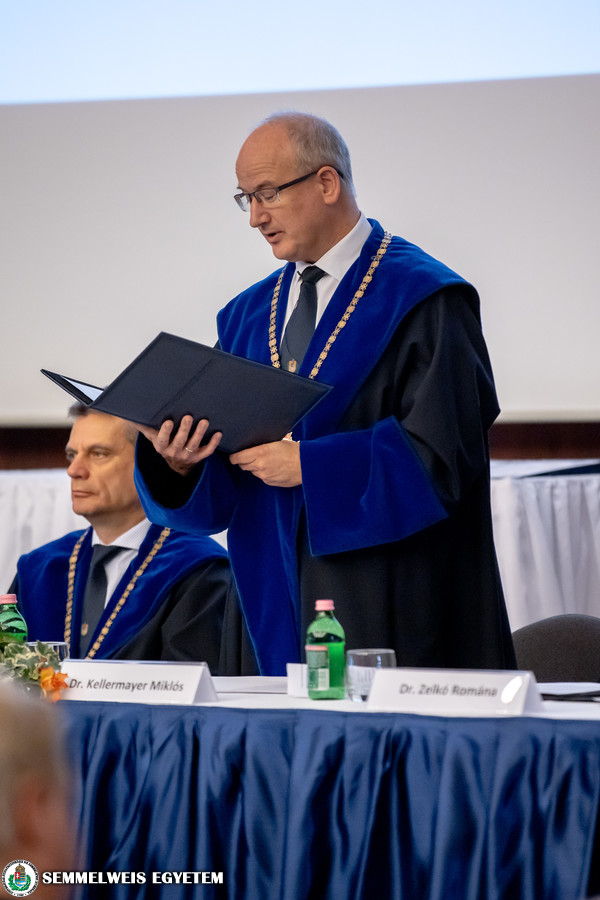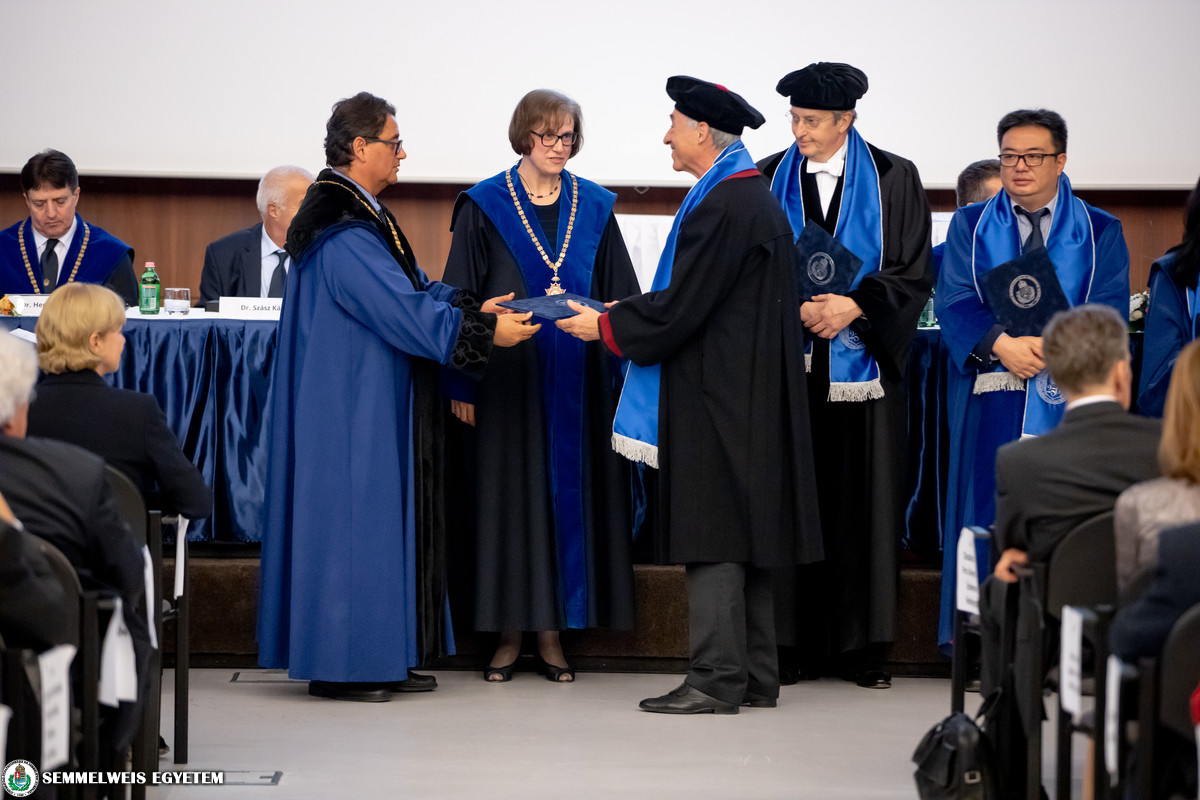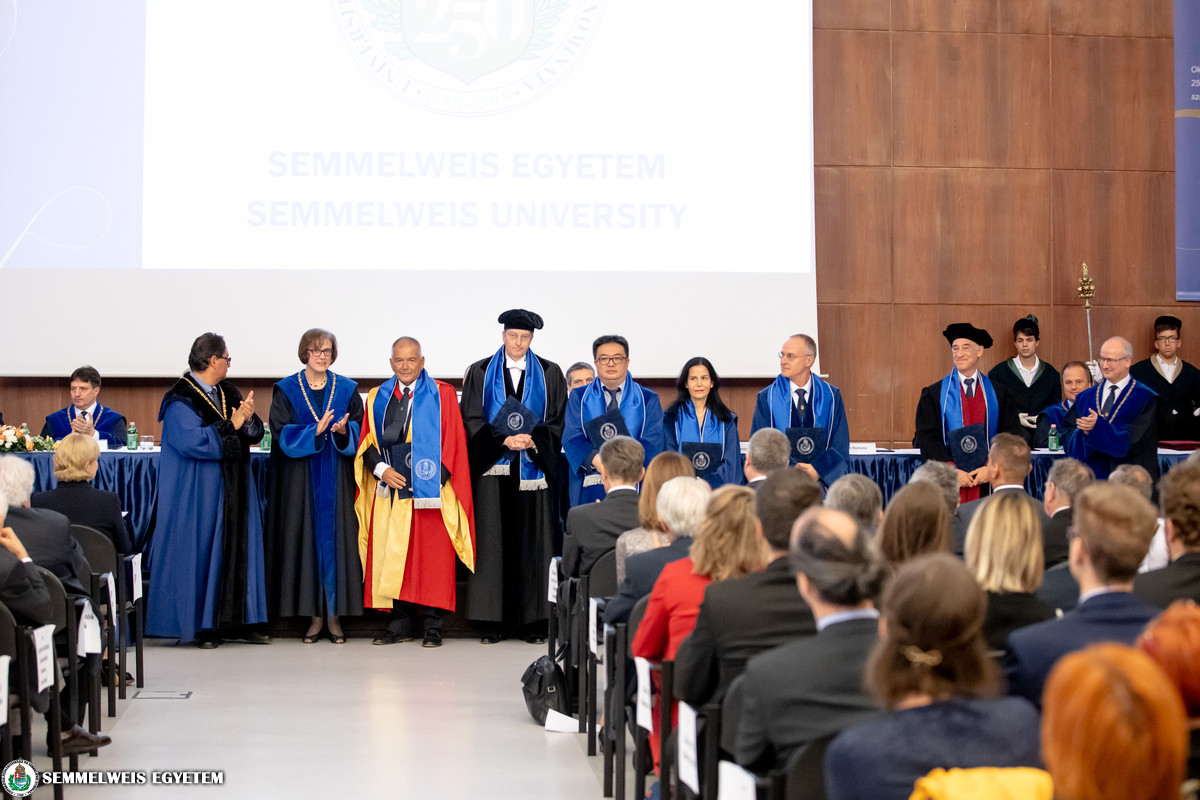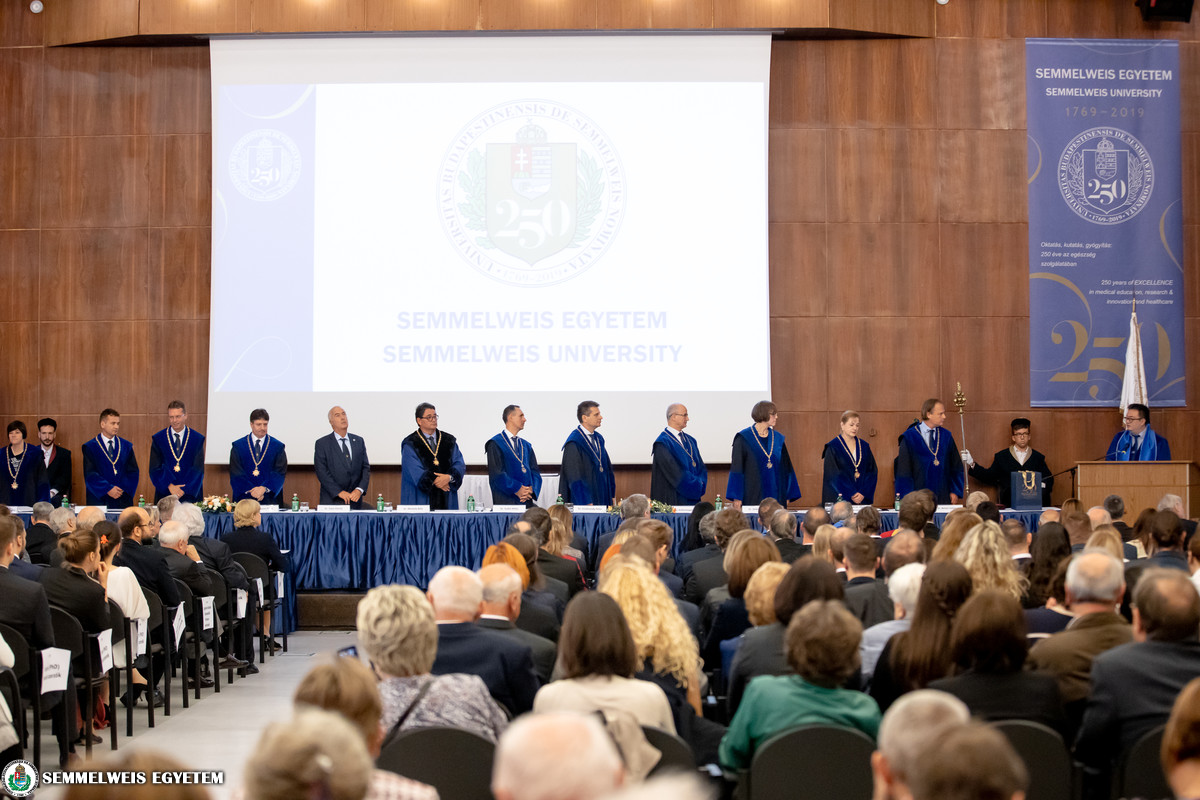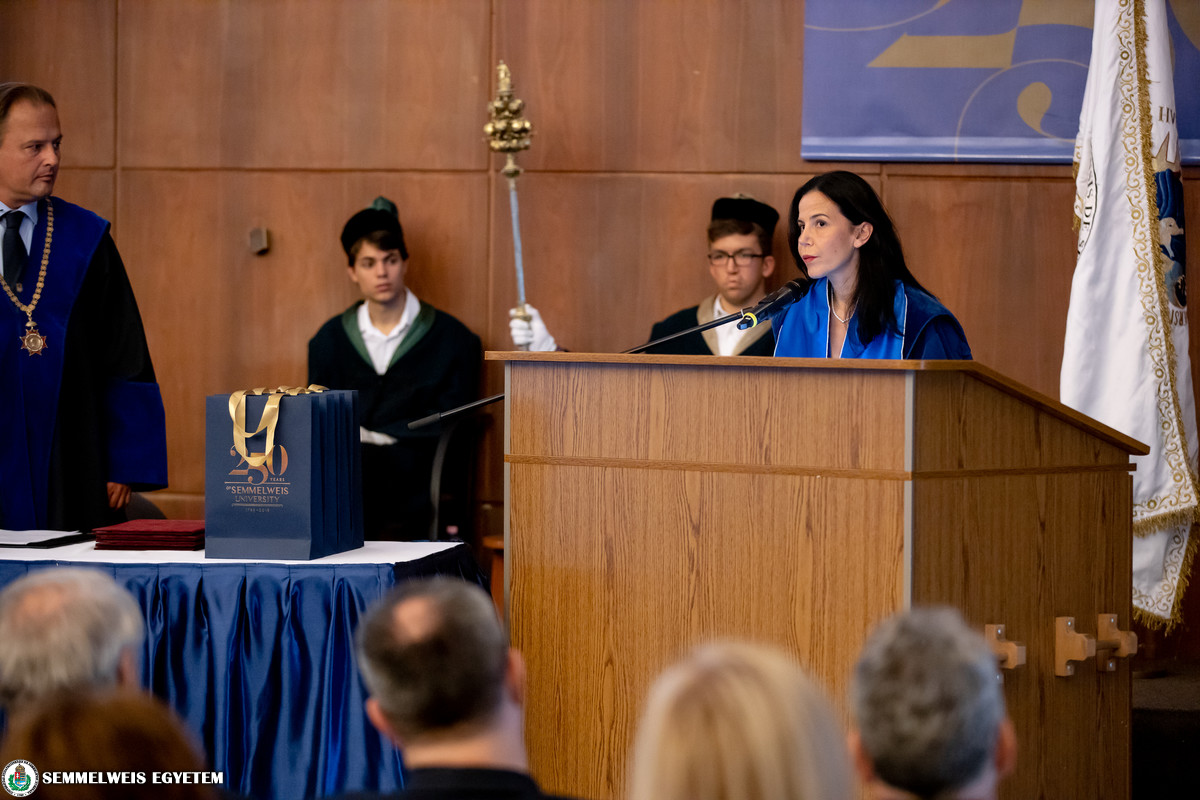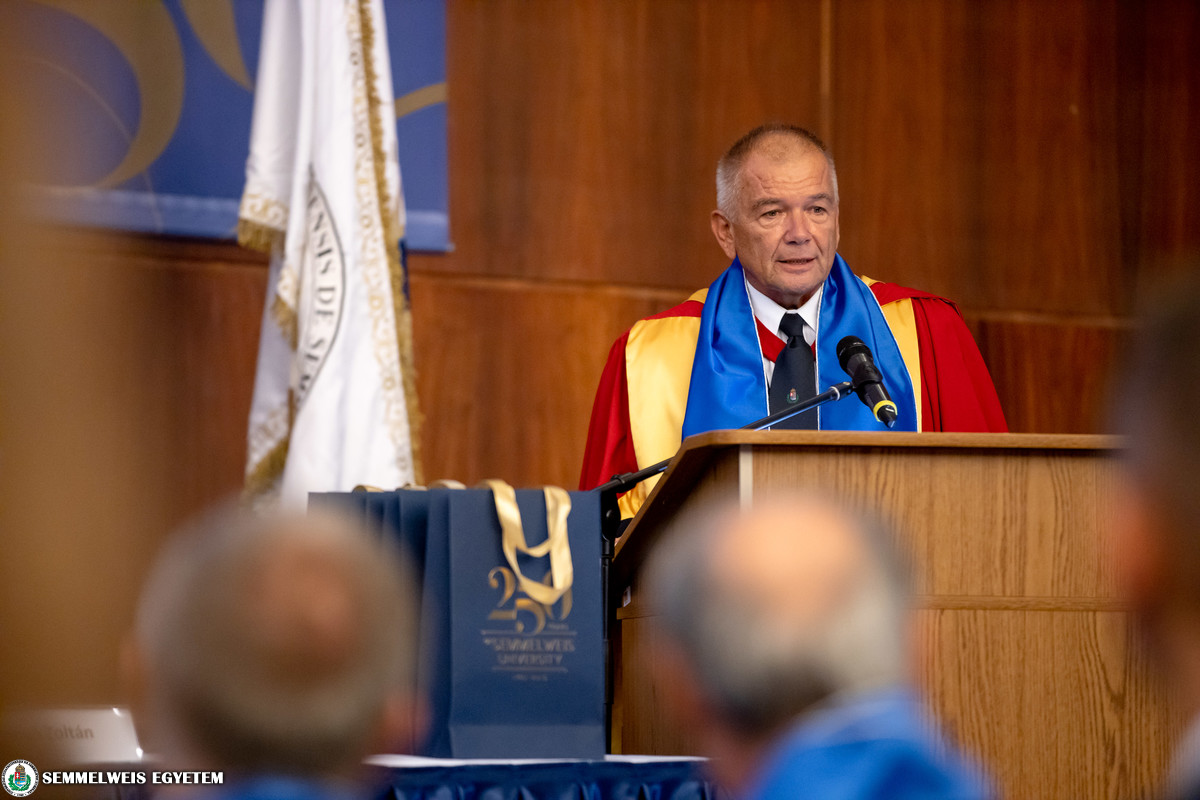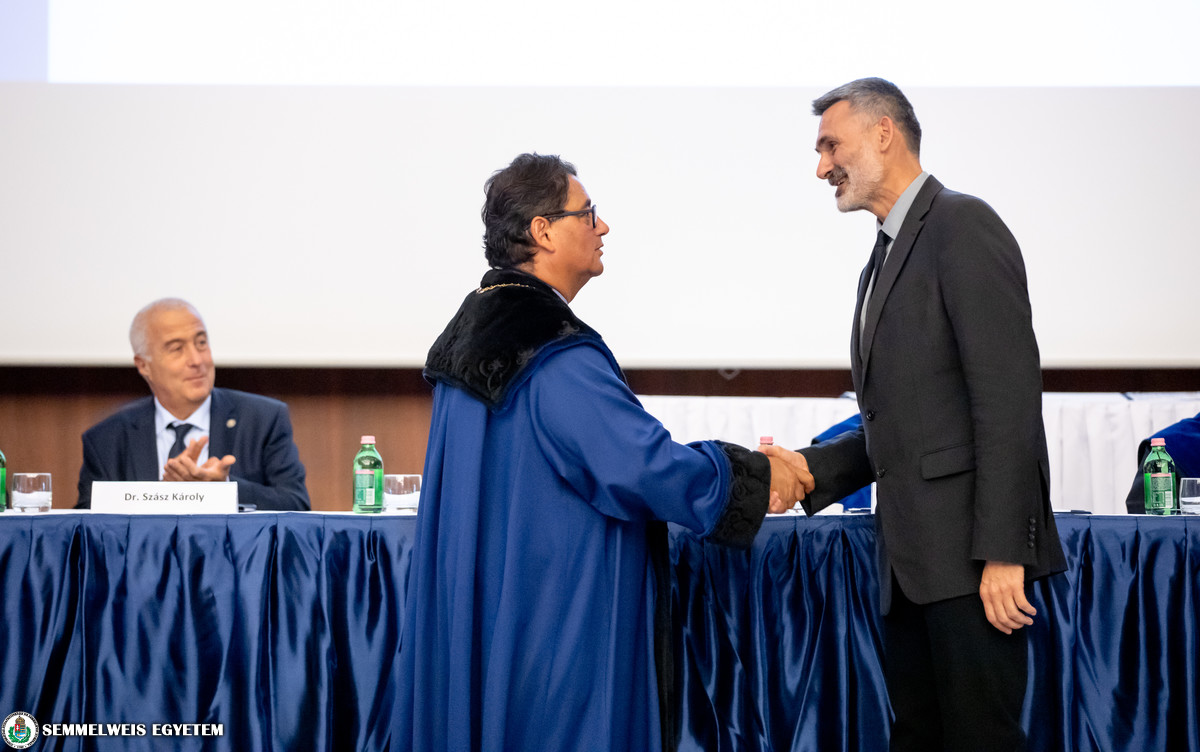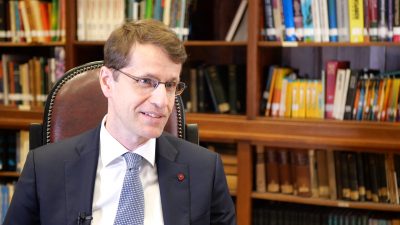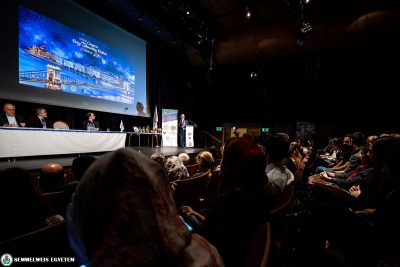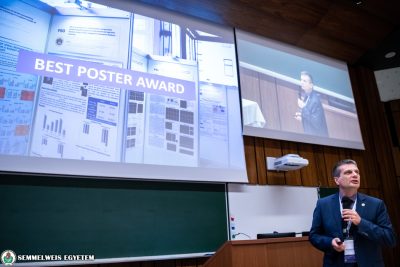The special Doctor Honoris Causa and Dies Academicus ceremony held in the 250th anniversary year of Semmelweis University was opened by rector Dr. Béla Merkely. He said that the ceremony is the closing as well as the crowning act of International Research Week, which was held around the birthday of Semmelweis University, and which links together two key events of the university’s academic life. “At the Doctor Honoris Causa ceremony, we are awarding for the 45th time since 1967 Honorary Doctor titles to internationally renowned professors that have scientific collaboration with our university, based on nominations made by the faculties, while one of the central elements of the Dies Academicus ceremony will be the official conferring of PhD Doctorate titles, and we will also recognize our outstanding lecturers and workers,” said the rector. He recalled the beginnings of the university’s 250-year history, noting that the decision to move the university from Nagyszombat (today Trnava, Slovakia) to Buda not long after its establishment was due to the lack of a teaching hospital.
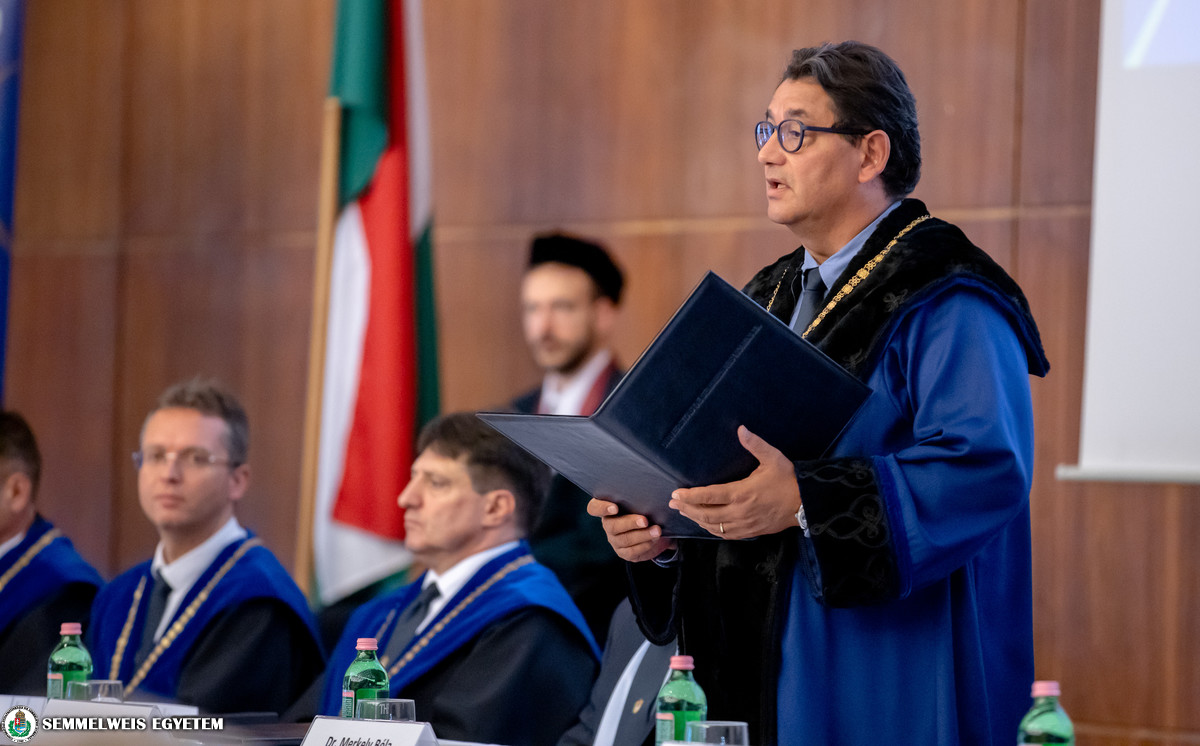 “Thus, we were paying respect to our oldest roots when we started our anniversary year with a practice-oriented reform of our education program,” the rector emphasized, adding that closely linked to the curriculum reform is the shift toward innovation, therefore one of the important goals of this anniversary year is developing health industry innovation and that the university become a leader in Central and Eastern Europe in this area. Semmelweis University’s new research & development & innovation strategy serves these goals, and its implementation has already produced tangible results: the building of the university’s innovation ecosystem has started, the flagship of which will be the Health Industry-Biotechnology Science Park. “Raising the proportion of translational research studies is among our strategic priorities, due to their role in laying the foundation for future generations, and the approach of our new strategy is served among others by the renewal of the organization of doctoral training, as well as the multi-step modification of the doctoral rules and regulations,” the rector said.
“Thus, we were paying respect to our oldest roots when we started our anniversary year with a practice-oriented reform of our education program,” the rector emphasized, adding that closely linked to the curriculum reform is the shift toward innovation, therefore one of the important goals of this anniversary year is developing health industry innovation and that the university become a leader in Central and Eastern Europe in this area. Semmelweis University’s new research & development & innovation strategy serves these goals, and its implementation has already produced tangible results: the building of the university’s innovation ecosystem has started, the flagship of which will be the Health Industry-Biotechnology Science Park. “Raising the proportion of translational research studies is among our strategic priorities, due to their role in laying the foundation for future generations, and the approach of our new strategy is served among others by the renewal of the organization of doctoral training, as well as the multi-step modification of the doctoral rules and regulations,” the rector said.
During the ceremony, Honorary Doctor titles were awarded for the 45th time to internationally recognized professors with close scientific relationships to the university. Eight professors were given Semmelweis University’s Doctor Honoris Causa award this year, with two of them, Dr. Michel Komajda and Dr. Jeroen Bax, receiving their awards during the opening day of the Semmelweis Symposium on November 5.
At the November 8 Doctor Honoris Causa and Dies Academicus ceremony, four professors were awarded honorary doctor titles on the nomination of the Faculty of Medicine. The laudations were presented by Dr. Miklós Kellermayer, dean of the faculty.
Dr. Derek John Hausenloy cardiology specialist, currently a professor at Duke-National University of Singapore Medical School and University College London. He is a Senior Consultant Cardiologist at the National Heart Centre, Singapore and an Honorary Consultant Cardiologist at Barts Heart Center of St Bartholomew Hospital in London. His main field of research is cardioprotection. Since 2010, Dr. Hausenloy has active scientific collaborations with a research group of the Department of Pharmacology and Pharmacotherapy at Semmelweis University, which has so far resulted in 23 international publications, and a jointly won international research grant.
Dr. Pancras Hogendoorn is professor of pathology, member of the Board of Directors and the dean of the Leiden University Medical Center, The Netherlands. His research is focused on the pathogenesis, morphology and molecular pathology of bone and soft tissue tumors. His collaboration with Semmelweis University began more than 15 years ago, as a result of which numerous joint scientific papers were published in the field of bone and soft tissue tumors. It was he who nominated Semmelweis University to become a member of the EuroLife Consortium.
Dr. Rosalinda Madonna, cardiologist, is a senior researcher at the University of Pisa, associate professor at the University “G. d’Annunzio” Chieti in Italy. Her research work focuses on cardiac regeneration, and cell and gene therapy. Her research team has been in close relationship with the Department of Pharmacology and Pharmacotherapy at Semmelweis University since 2012. So far this close collaboration has resulted 26 joint international publications, some of which became highly cited.
Dr. Peter Schirmacher is professor of pathology and director of the Institute of Pathology at Karls-Ruprecht University of Heidelberg since 2004. His main research fields include hepatology, oncology and molecular pathology with a special focus on the mechanisms, molecular diagnostics and classification of liver cancer. His work helped uncover the mechanisms of resistance to the treatment of liver cancer. His collaboration with the 2nd Department of Pathology of Semmelweis University began more than 15 years ago.
Two professors were nominated by the Faculty of Pharmaceutical Sciences, whose laudations were presented by Dr. Romána Zelkó, dean of the faculty.
Dr. Stefan Mühlebach pharmacist, pharmacologist, until 2005 his research focus was on persistent and unmetabolizable model compounds. He worked for almost 25 years as hospital pharmacist, most of the time in in Aarau, Switzerland. He was Head of the Department of Central Medical Services. He headed the Swiss Association of Hospital Pharmacists and is a member of the Swiss Academia of Pharmaceutical Science, serving as vice-president from 2009 to 2018. Intensive cooperation was built between him and Semmelweis University’s pharmaceutical faculty,as a result of which and their four international conferences were organized since 2012.
Dr. István Tóth is Chair in Biological Chemistry and Professor of Pharmacy at the School of Chemistry and Molecular Biosciences of the University of Queensland in Australia. He graduated in chemical engineering from the Technical University Budapest, and later from 1985 worked at the School of Pharmacy, University of London where he changed his research direction to peptides, lipids and carbohydrate chemistry and is now an internationally recognized expert in those fields. He moved to Australia in 1998 and has built up a strong, very productive research group at the University of Queensland. He has collaborated for several years with Semmelweis University with research groups of Vizi E. Szilveszter, László Hársing, György Kéry and Imre Klebovich.
Following the laudations, Dr. Béla Merkely, Dr. Miklós Kellermayer and Dr. Romána Zelkó handed over the certificates and stoles to the awardees, after which the newly conferred honorary doctors gave their speeches.
Three people were awarded the Pro Universitate Order of Merit at the formal Senate meeting. This award is presented to those who have helped the professional realization of Semmelweis University’s goals at a high level with their many years of excellence. Rector Dr. Béla Merkely awarded Pro Universitate Orders of Merit to Ferenc Pál, Catholic priest and staff member at the university’s Institute of Mental Health; Dr. Ronald von Jako, chief medical officer of General Electric Health Care; and Dr. Vinod P. Shah, the founder and chairman of the Society of Pharmaceutical Dissolution Science (SPDS) International.
The event continued with the conferring of PhD doctoral degrees, as in 2019 a total of 117 candidates completed their PhD degrees, of which 99 graduated summa cum laude, and 18 cum laude, said Dr. Zoltán Benyó, President of the Doctoral Council. He conferred the graduates their PhDs, and together with Rector Merkely accepted them as fellow-doctors with their handshake.
Also presented at the event by Dr. Benyó were “Outstanding PhD instructor” awards, to Dr. István Bitter, Dr. János Rigó, Dr. László Rosivall, Dr. József Tímár and Dr. Tivadar Tulassay.
The certificates for honorary professors, honorary associate professors, honorary college associate professors and master instructors were presented by rector Dr. Béla Merkely.
The ceremony concluded with a performance by the Medic Orchestra.
For a lot more photos from the event, see the full gallery in our Hungarian article.
Pálma Dobozi, Tamás Deme
Photo: Attila Kovács – Semmelweis University
